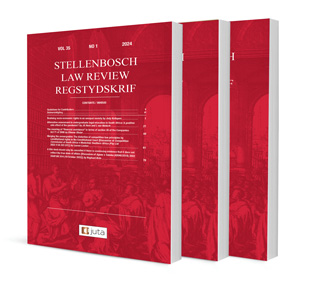Integrative Constitutionalisation of International Soft Law: Application of the United Nations Business and Human Rights Framework and its Implication for Business Corporations in Kenya

Integrative Constitutionalisation of International Soft Law: Application of the United Nations Business and Human Rights Framework and its Implication for Business Corporations in Kenya
Author Japheth Odhiambo
ISSN: 2521-2613
Affiliations: LLB (Hons) (Nairobi), PGDL (Kenya School of Law), LLM (Nairobi); Advocate of the High Court of Kenya
Source: Africa Nazarene University Law Journal, 2014, Issue 1, p. 108 – 132
Abstract
This article evaluates the application of international soft law through an approach it terms ‘integrative constitutionalisation’. In this approach, the values and principles raised in soft international law are contextualised and built into the operative architecture of the Kenyan Constitution. The evaluation is undertaken using the United Nations Guiding Principles on Business and Human Rights. The article establishes the link between human rights and business in order to contextualise the place of human rights in business and corporate governance. The article also considers the Kenyan situation in relation to business and human rights and assesses how Kenya has constructively integrated the international soft law on business and human rights into its Constitution. The view of this article is that claims for (international) human rights protection and promotion in the governance and activities of business corporations are legitimate and require to be addressed, properly, at the constitutional plane. One of the findings of the article is that Kenya has integrated the United Nations Business and Human Rights Framework into its 2010 Constitution.
